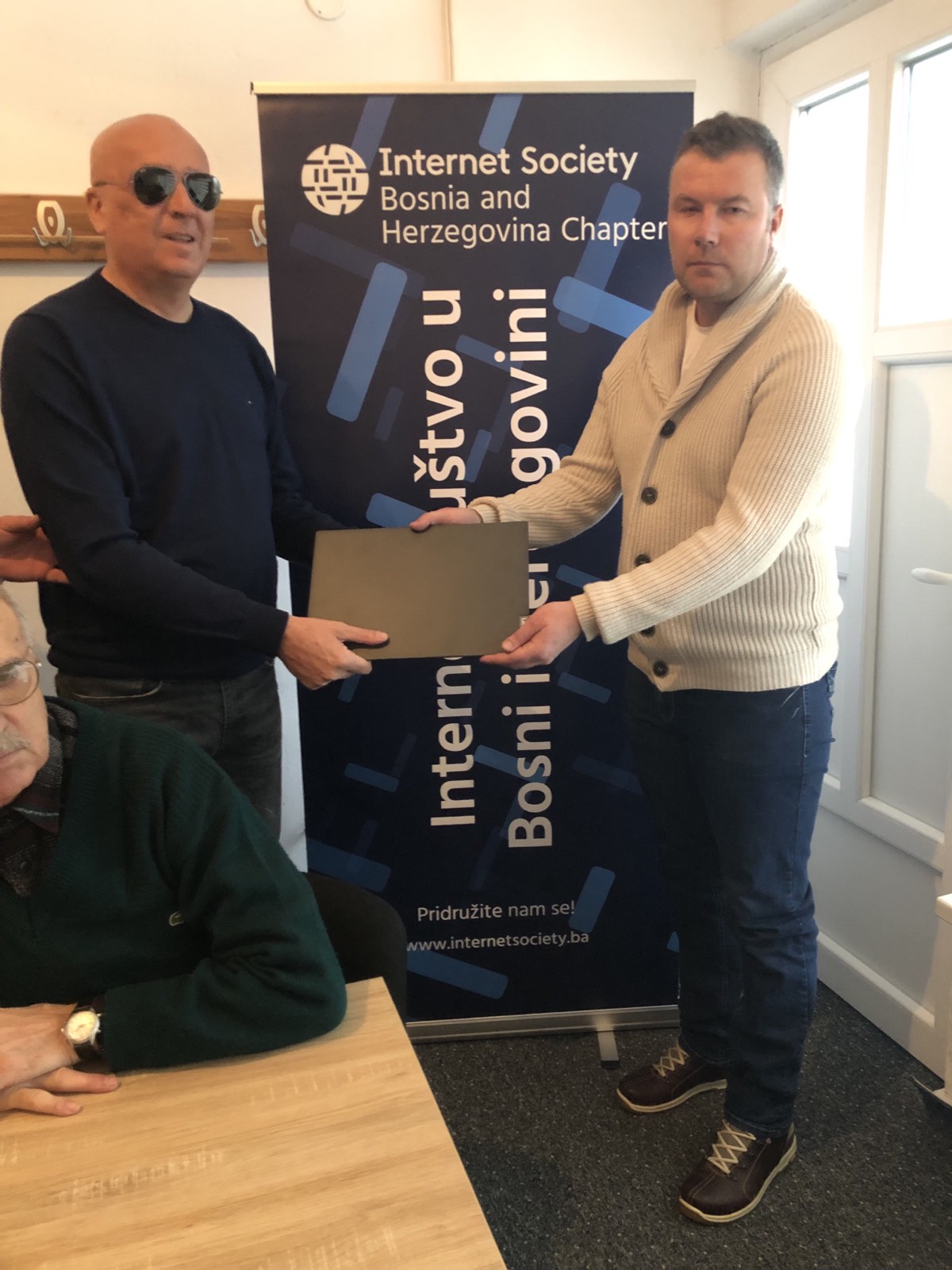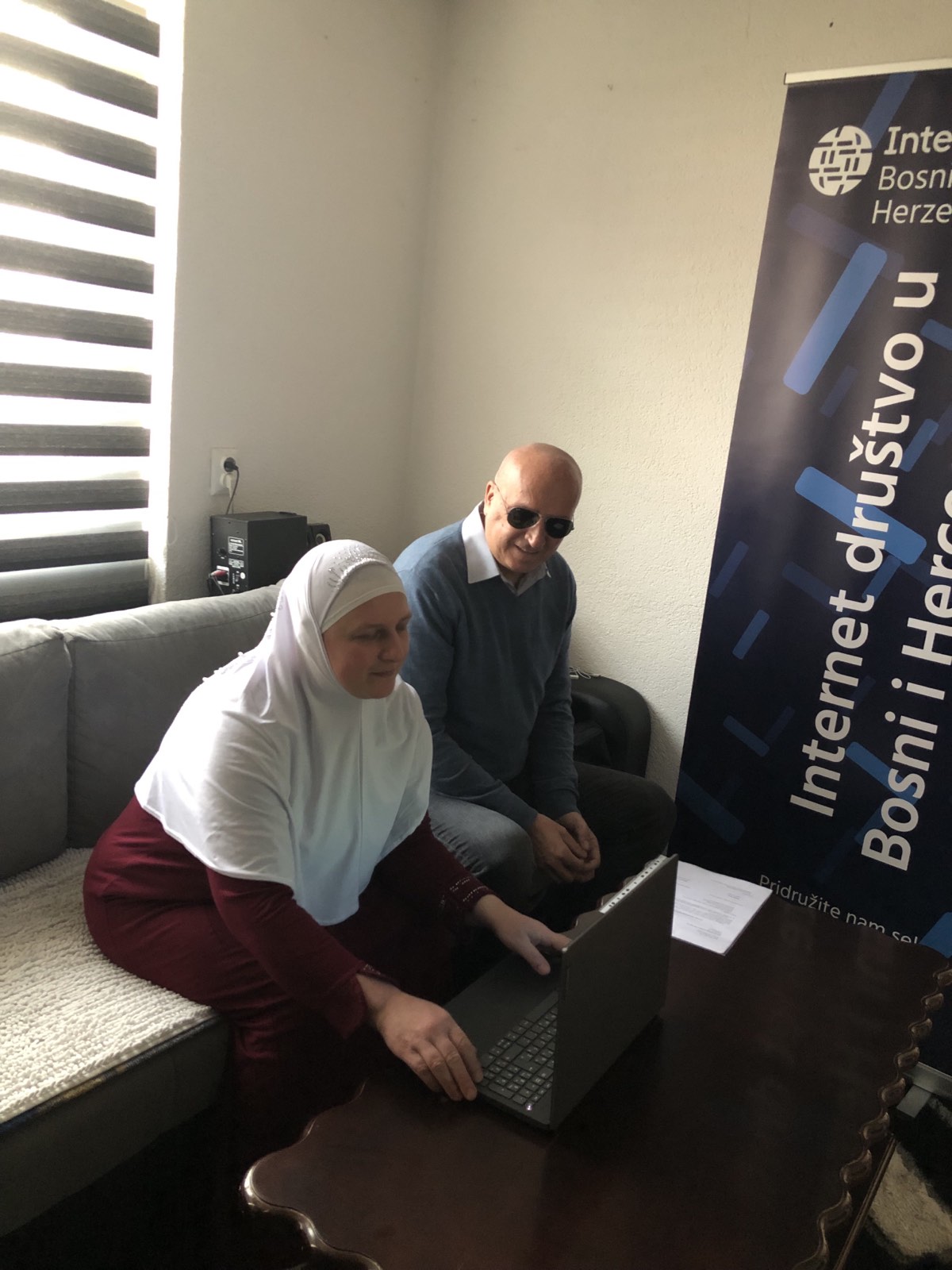Avi Richards@Unsplash
An Internet for everyone: empowering persons with disabilities through accessibility
Although website accessibility was a core principle in the use and development of the Internet, most websites are far from being accessible to everyone. In response, the project “Enhancing the barrier-free Internet through blind people empowerment”, aims to address this issue through direct training on Internet use and web accessibility improvement, for the visually impaired. This project is in several ways a first: it is the Bosnia and Herzegovina Chapter’s inaugural Beyond the Net Large $30,0000 project, and it is also the first of its kind for the Internet Society Foundation, in terms of regional scope and focus.
In November 2022, the Internet Society Foundation team visited Sarajevo with the purpose of meeting the enthusiastic and dedicated Chapter members behind this project, as well as the participants that took part in the training. Among the members met was Hamdo Kentra, lead trainer in this project, who is visually impaired and brings in not only the technical skills, and pedagogical approach to his trainings, but a contagious energy and will to motivate his trainees to learn and thrive. We asked Hamdo, as well as Ernad Kuloglija, a trainee, a few questions to get their perspective on what makes this project their first successful grant.
Hamdo, how do you think Internet accessibility changes the everyday life experiences of the visually impaired?
Emerging technologies and the use of the Internet have changed and improved the status of blind people concerning society, friends, work, and education. Almost all forms of entertainment and information have moved to the digital space, and because of this, blind persons have been given the opportunity to use the benefits offered by the Internet, if they want to. Barriers faced by blind persons in the form of inaccessible information can be removed if web designers and content creators respect accessibility standards. And in that case, although we are blind people, we can use the information and all other benefits provided by the Internet, with little effort.
Among the first priorities of accessibility is education itself, both for blind persons and for people who create and publish digital content. Through this project, I got the opportunity to transfer my knowledge to other blind persons, where I trained three students to become trainers. This result would have been difficult or even impossible to achieve without this project, which provided the nine selected candidates with the necessary training and laptops.
What were the main challenges you encountered in accessing the Internet for learning purposes?
From my personal experience, I can say that everything I learned in the field of informatics, education, and programming I learned by myself, primarily thanks to the information I found on the Internet, but it was a very long and hard process of education.
In the period 1997-1998, there was no accessible literature or blind persons who could help me and pass on their knowledge. It was especially difficult to understand speech synthesis in English reading texts in the Bosnian language, because at that time there was no localised speech synthesis for the Bosnian language.
I want to point out that every moment spent in the education process will certainly be rewarded many times over, bearing in mind the fact that blind persons get a wide-open door to an inexhaustible amount of information and benefits. I believe that blind persons must keep up with the times and that they should accept new technologies as a basic tool through which they will achieve equal opportunities as others.
As a lead trainer, in what ways has taking part in this project influenced your perception of the role of the Internet for the visually impaired?
Taking part in this project has shown me even more the potential of the Internet in improving lives for the visually impaired, but only if one has the access and skills to make use of the platform. A candidate that we trained during the project was Ms. Mufida Balta from a small town called Breza. Mufida had no previous experience with the use of computers and speech programs for blind persons.
In an interview before the training began, she expressed a wish that she would like to learn how to use a computer to search the Internet and YouTube, read digital books and communicate via e-mail. Although she has completed only four grades of primary school and has never been a beneficiary of any additional education for blind persons, Mufida showed great potential in understanding and using digital technologies. The typing on the keyboard and use of the laptop was completely unknown to her before the training.


Ernad Kuloglija, another trainee on the project, reflected on his experience after the training stating:
I feel so good, and excited because it is an opportunity for me to enter the “normal world’’. “Normal”, because people accept the stigma that blind persons and generally people with disability cannot achieve anything, but they are wrong, as we can do the same thing as completely healthy people. In fact, we only have a stronger motive to succeed in life, fight, and be involved in society. I am very satisfied with everything.
In many ways, the Bosnia & Herzegovina Chapter’s project reflected the mission of the Beyond the Net Program by launching a project that positively changed lives; achieving results through the passion and expertise of Chapter members. Moreover, this Chapter successfully demonstrated how ensuring accessibility to the Internet enhances the quality of life for all those involved (from trainer to trainees), reinforcing our vision at the Internet Society Foundation, of a barrier-free Internet, an Internet for Everyone.
